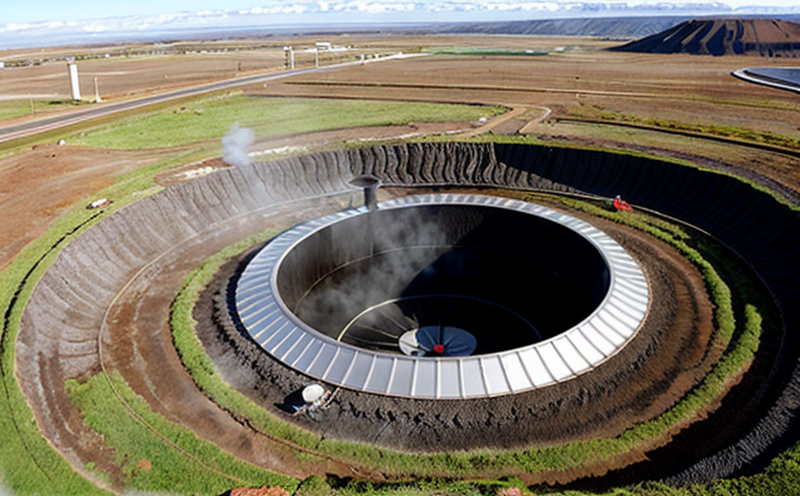ASTM D2777 Precision Testing of Chemical Analyses for Geothermal Waters
The precision testing outlined in ASTM D2777 is a critical component in ensuring the quality and consistency of chemical analyses conducted on geothermal waters. This standard specifies procedures for determining the precision of chemical measurements made by laboratories that analyze geothermal fluids. Such precision is essential, given the high stakes involved in geothermal energy systems, including accurate resource assessment, efficient system design, and regulatory compliance.
Geothermal energy represents a significant portion of renewable energy sources globally, with countries like Iceland, the Philippines, and parts of California leveraging this resource for power generation. The quality of geothermal fluids directly impacts the efficiency and longevity of geothermal systems. Accurate chemical analysis is vital to understanding fluid composition, which can vary widely from site to site due to geological differences.
The precision testing prescribed by ASTM D2777 involves a series of steps designed to ensure that analyses performed by different laboratories yield consistent results. This standard focuses on the reproducibility and repeatability of test methods, making it indispensable for quality assurance in geothermal energy projects. The method is particularly important as it helps establish confidence in the data generated from these analyses.
The testing process involves multiple steps, including sample collection, preservation, transport to the laboratory, preparation, analysis by various instruments (GC, HPLC), and finally, reporting results that are traceable back to the original samples. The precision of this testing is critical because even small variations in chemical composition can lead to significant differences in system performance or resource management decisions.
One of the key aspects of ASTM D2777 is its emphasis on inter-laboratory comparisons and collaborative studies. These exercises help laboratories calibrate their methods, identify potential sources of error, and improve overall accuracy. This approach fosters a culture of continuous improvement in analytical practices within the geothermal sector.
The standard also covers acceptance criteria for precision testing results. Laboratories must demonstrate that their test methods meet specified tolerances to be considered compliant with ASTM D2777. Compliance is essential not only for maintaining internal quality standards but also for meeting external regulatory requirements, such as those imposed by environmental protection agencies or energy regulators.
In the context of geothermal energy systems, precision testing plays a crucial role in ensuring that the resources being tapped are used efficiently and sustainably. By adhering to ASTM D2777, laboratories can contribute to more informed decision-making processes, leading to better resource management and reduced environmental impact.
Applied Standards
| Standard Number | Description |
|---|---|
| ASTM D2777-18 | Standard Practice for Precision of Chemical Analyses for Geothermal Waters |
| ISO 9001:2015 | Quality Management Systems Requirements |
| Application Area | Description |
|---|---|
| Laboratory Precision Testing | Determining the reproducibility and repeatability of chemical analyses |
| Geothermal Energy Systems | Evaluation of geothermal fluid composition for resource assessment |
Benefits
- Ensures consistency and reliability in chemical analyses across different laboratories.
- Promotes compliance with international standards, enhancing credibility.
- Facilitates inter-laboratory comparisons to identify sources of variability.
- Aids in the accurate assessment of geothermal resources for sustainable utilization.
- Supports efficient design and operation of geothermal energy systems.
Eurolab Advantages
Eurolab’s expertise in ASTM D2777 precision testing ensures that our clients receive accurate, reliable, and consistent results. Our laboratories are equipped with state-of-the-art instruments and trained personnel who understand the nuances of geothermal fluid analysis.
We offer comprehensive support throughout the entire testing process, from sample collection to final reporting. Our adherence to international standards guarantees that our findings meet the highest quality benchmarks expected in the geothermal sector.
By leveraging Eurolab’s precision testing services, clients can trust that their data is robust and reproducible, thereby enhancing decision-making processes related to resource management and system design. This level of assurance is crucial for maintaining compliance with regulatory requirements and ensuring sustainable practices within the industry.





